About Kolmac Outpatient Recovery Centers
Kolmac Outpatient Recovery Centers in Annapolis, Maryland, offers a flexible and compassionate approach to treatment that doesn’t ask you to put your entire life on pause. Their intensive outpatient program was actually one of the first of its kind in the country. And they’ve been perfecting it for over 50 years. If you’re looking for real support without having to commit to full time residential treatment this might be the place for you.
Support That Feels Like It’s Built for You
Kolmac is especially known for working with adults who have co-occurring mental health challenges or trauma or past relapses. They don’t just treat the addiction, but they take time to understand what’s underneath it. If you’re dealing with anxiety or depression or PTSD or even if you just feel like nothing has worked out for you before, the team here is ready to go a lot deeper. They’re not afraid of complex cases, and they don’t expect anyone to show up with everything figured out.
Their gender-responsive programming creates space for men and women to heal in ways that feel safe and affirming. They understand that everyone’s story looks different too, which is why they create customized treatment plans from the start. You get one-on-one therapy, group support and access to people who have been through it too, like peer recovery coaches who know what it’s like to be in your shoes.
Payment Options
They accept private health insurance as well as military coverage such as TRICARE. They also allow self-payment.
Rehab Score
Gallery
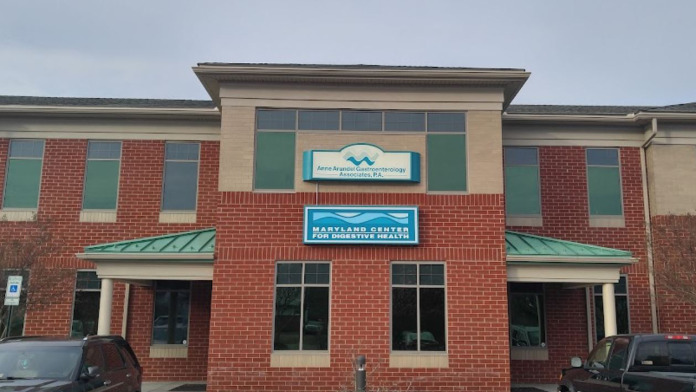
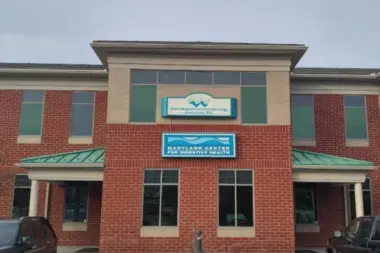
Accepted Insurance


Other Forms of Payment
Private insurance refers to any kind of healthcare coverage that isn't from the state or federal government. This includes individual and family plans offered by an employer or purchased from the Insurance Marketplace. Every plan will have different requirements and out of pocket costs so be sure to get the full details before you start treatment.
Self-pay involves paying for treatment out of your own pocket. You can use savings or credit, get a personal loan, or receive help from family and friends to fund your treatment. If you don't have insurance or your insurance plan doesn't cover a specific program, self-pay can help ensure you still get the care you need.
Military members, veterans, and eligible dependents have access to specific insurance programs that help them get the care they need. TRICARE and VA insurance can help you access low cost or no cost addiction and mental health treatment. Programs that accept military insurance often have targeted treatment focused on the unique challenges military members, veterans, and their families face.
Addiction Treatments
Levels of Care
Outpatient Programs (OP) are for those seeking mental rehab or drug rehab, but who also stay at home every night. The main difference between outpatient treatment (OP) and intensive outpatient treatment (IOP) lies in the amount of hours the patient spends at the facility. Most of the time an outpatient program is designed for someone who has completed an inpatient stay and is looking to continue their growth in recovery. Outpatient is not meant to be the starting point, it is commonly referred to as aftercare.
Drug and alcohol addiction often takes a heavy toll on one's body. Over time, a physical dependence can develop, meaning the body physiologically needs the substance to function. Detox is the process of removing drugs and/or alcohol from the body, a process that can be lethal if mismanaged. Medical detox is done by licensed medical professionals who monitor vital signs and keep you safe, healthy, and as comfortable as possible as you go through detox and withdrawal.
The general structure of the Rehabilitation Program is: attend group therapy and education sessions that last for three-hours each day. The patient come five times the first week with the frequency being reduced over the next several weeks as their condition stabilizes. By the end, the patient typically attend twenty to thirty sessions over a period of eight weeks. Two or more staff members are present along with eight to fifteen other patients. The patient will also have the opportunity to meet individually with a clinician several times during the course of the treatment. They also schedule individual family meetings when they think that would be helpful.
12-step programs are addiction recovery models based on Alcoholics Anonymous (AA). A number of substance abuse programs (including some drug and alcohol rehab centers) use the 12 steps as a basis for treatment. Beginning steps involve admitting powerlessness over the addiction and creating a spiritual basis for recovery. Middle steps including making direct amends to those who've been hurt by the addiction, and the final step is to assist others in addiction recovery in the same way. 12-Step offshoots including Narcotics Anonymous (NA), Cocaine Anonymous (CA), Dual Recovery Anonymous (DRA), Sex and Love Addicts Anonymous (SLAA) and Gamblers Anonymous (GA).
In the continuing care phase of treatment the patient has the opportunity to consolidate the progress that he/she has made during the initial part of the treatment. At Kolmac, continuing care consists of once weekly 2-hour group therapy sessions that are co-led by two licensed or certified clinicians. The length of this treatment phase is variable, depending on the patient needs and progress. They encourage people to remain until they have established a strong recovery plan, which usually require one to two years. During this phase, family members and friends are encouraged to continue to attend the family and friends support group at Kolmac. The patient is also encouraged to become more deeply involved in whichever recovery community support groups he/she prefer. Combining community support groups with simultaneous participation in professional treatment provides the best likelihood of a satisfying and stable recovery.
Treatments
The goal of treatment for alcoholism is abstinence. Those with poor social support, poor motivation, or psychiatric disorders tend to relapse within a few years of treatment. For these people, success is measured by longer periods of abstinence, reduced use of alcohol, better health, and improved social functioning. Recovery and Maintenance are usually based on 12 step programs and AA meetings.
Once a person has become addicted to a substance, drug rehab in Maryland is often necessary to overcome that addiction. These programs provide the tools individuals need to manage the physical, mental, and emotional issues involved and begin a successful recovery journey.
People with alcohol and drug problems often have additional psychiatric problems that require treatment in order to achieve a satisfying recovery. The other problems that occur most commonly are mood, attention deficit/hyperactivity, anxiety, and trauma disorders. At Kolmac, one of their basic beliefs has always been that the best results occur when addiction and other psychiatric problems are treated simultaneously. In order to accomplish this, Kolmac maintains a full staff of psychiatrists, psychiatric nurses, nurse practitioners, and physician assistants. They collaborate with patients’ outside clinicians on the best treatment plan. If necessary, their staff will prescribe medication and will arrange for a psychotherapy referral to an outside therapist.
A combined mental health and substance abuse rehab has the staff and resources available to handle individuals with both mental health and substance abuse issues. It can be challenging to determine where a specific symptom stems from (a mental health issue or an issue related to substance abuse), so mental health and substance abuse professionals are helpful in detangling symptoms and keeping treatment on track.
Opioid rehabs specialize in supporting those recovering from opioid addiction. They treat those suffering from addiction to illegal opioids like heroin, as well as prescription drugs like oxycodone. These centers typically combine both physical as well as mental and emotional support to help stop addiction. Physical support often includes medical detox and subsequent medical support (including medication), and mental support includes in-depth therapy to address the underlying causes of addiction.
Programs
Adult rehab programs include therapies tailored to each client's specific needs, goals, and recovery progress. They are tailored to the specific challenges adult clients may face, including family and work pressures and commitments. From inpatient and residential treatment to various levels of outpatient services, there are many options available. Some facilities also help adults work through co-occurring conditions, like anxiety, that can accompany addiction.
Young adulthood can be an exciting, yet difficult, time of transition. Individuals in their late teens to mid-20s face unique stressors related to school, jobs, families, and social circles, which can lead to a rise in substance use. Rehab centers with dedicated young adult programs will include activities and amenities that cater to this age group, with an emphasis on specialized counseling, peer socialization, and ongoing aftercare.
Clinical Services
Cognitive Behavioral Therapy (CBT) is a therapy modality that focuses on the relationship between one's thoughts, feelings, and behaviors. It is used to establish and allow for healthy responses to thoughts and feelings (instead of unhealthy responses, like using drugs or alcohol). CBT has been proven effective for recovering addicts of all kinds, and is used to strengthen a patient's own self-awareness and ability to self-regulate. CBT allows individuals to monitor their own emotional state, become more adept at communicating with others, and manage stress without needing to engage in substance abuse.
Research clearly demonstrates that recovery is far more successful and sustainable when loved ones like family members participate in rehab and substance abuse treatment. Genetic factors may be at play when it comes to drug and alcohol addiction, as well as mental health issues. Family dynamics often play a critical role in addiction triggers, and if properly educated, family members can be a strong source of support when it comes to rehabilitation.
Group therapy is any therapeutic work that happens in a group (not one-on-one). There are a number of different group therapy modalities, including support groups, experiential therapy, psycho-education, and more. Group therapy involves treatment as well as processing interaction between group members.
In individual therapy, a patient meets one-on-one with a trained psychologist or counselor. Therapy is a pivotal part of effective substance abuse treatment, as it often covers root causes of addiction, including challenges faced by the patient in their social, family, and work/school life.
Nicotine Replacement Therapy (NRT) is a way of getting nicotine into the bloodstream without smoking. It uses products that supply low doses of nicotine to help people stop smoking. The goal of therapy is to cut down on cravings for nicotine and ease the symptoms of nicotine withdrawal.
Trauma therapy addresses traumatic incidents from a client's past that are likely affecting their present-day experience. Trauma is often one of the primary triggers and potential causes of addiction, and can stem from child sexual abuse, domestic violence, having a parent with a mental illness, losing one or both parents at a young age, teenage or adult sexual assault, or any number of other factors. The purpose of trauma therapy is to allow a patient to process trauma and move through and past it, with the help of trained and compassionate mental health professionals.
Amenities
-
Private Setting
Staff & Accreditations
Staff
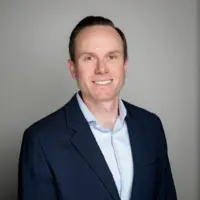
Anton Kuznetsov
CEO
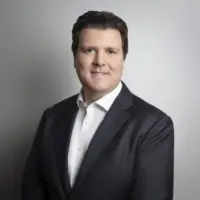
Colin Feehan
CFO
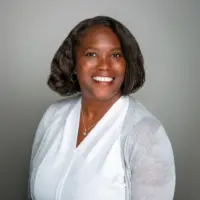
Dr. Erika Kane, MD, FASAM
Chief Medical Officer
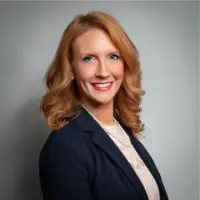
Nicole Diffenderfer
Chief Human Resources Officer
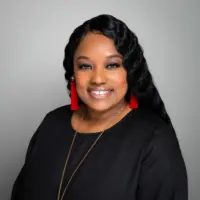
Keonna Armstrong
VP of Revenue Cycle

Joseph H. O'Leary, MD
Medical Director

Matthew Baker
VO of Grawth
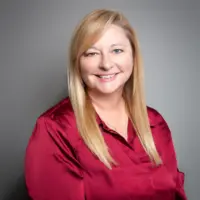
Genevieve King
VP of Operations & Compliance
Accreditations

The Commission on Accreditation of Rehabilitation Facilities (CARF) is a non-profit organization that specifically accredits rehab organizations. Founded in 1966, CARF's, mission is to help service providers like rehab facilities maintain high standards of care.
CARF Accreditation: Yes
Accreditation Number: 253949

State Licenses are permits issued by government agencies that allow rehab organizations to conduct business legally within a certain geographical area. Typically, the kind of program a rehab facility offers, along with its physical location, determines which licenses are required to operate legally.
State License: Maryland
License Number: BH000038
Contact Information
820 Bestgate Road
Suite 2C
Annapolis, MD 21401







